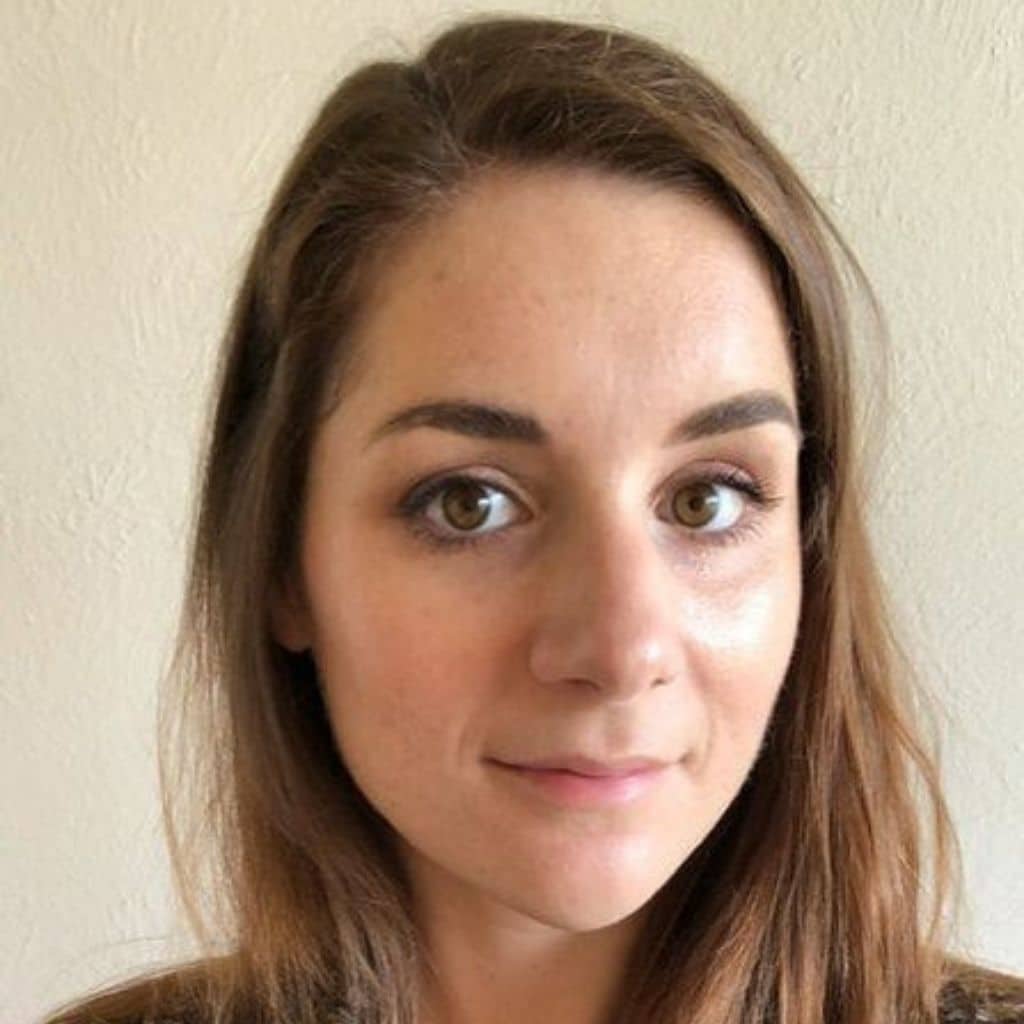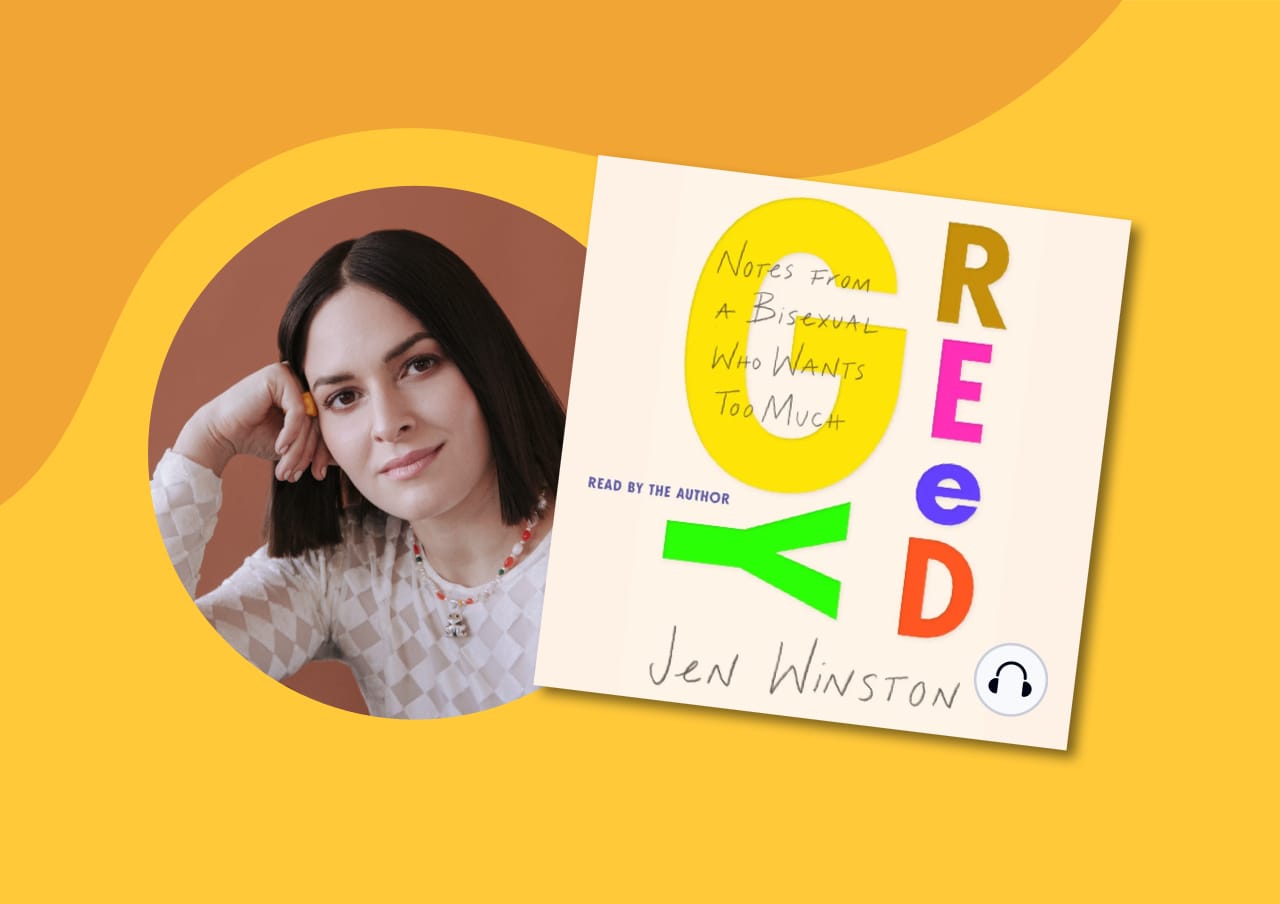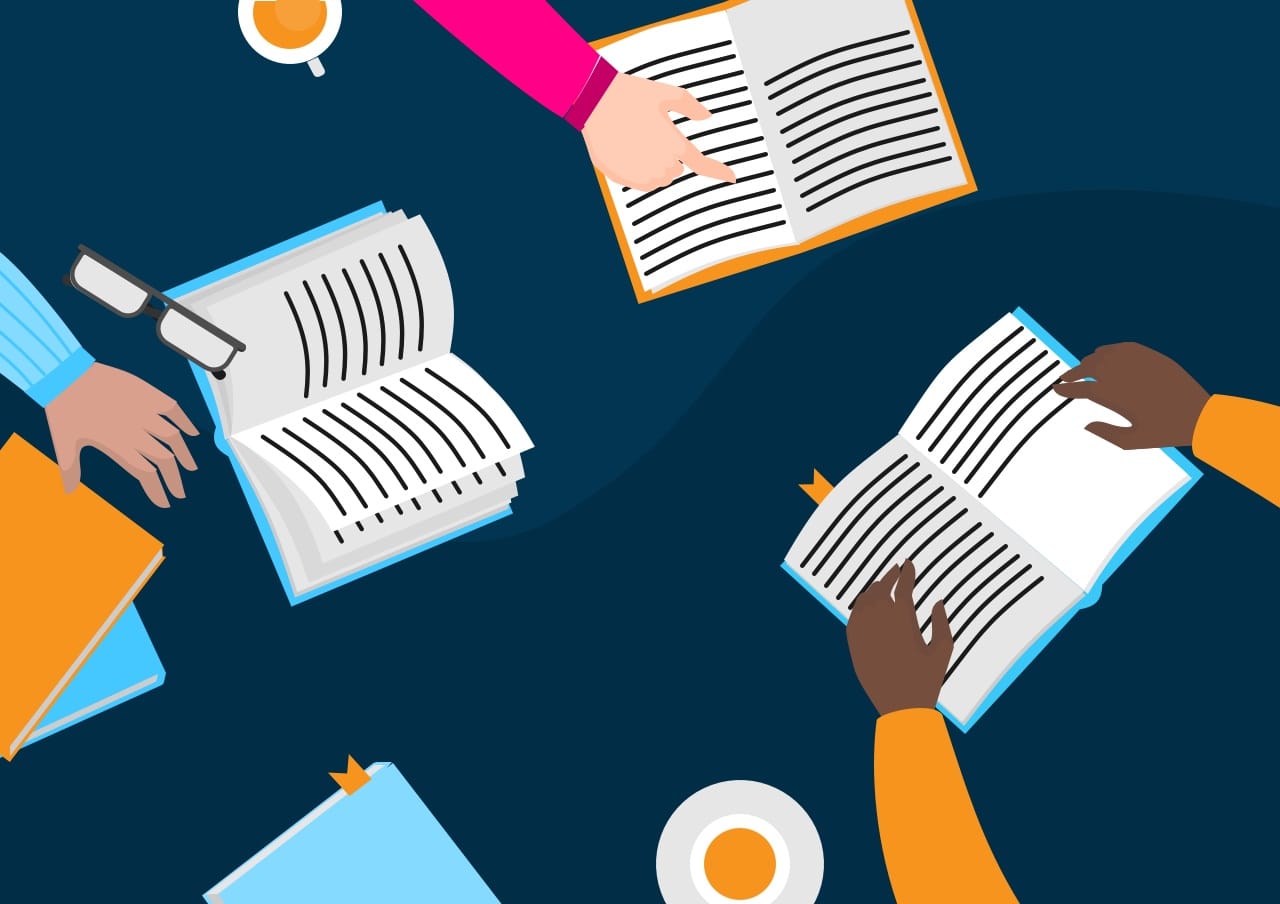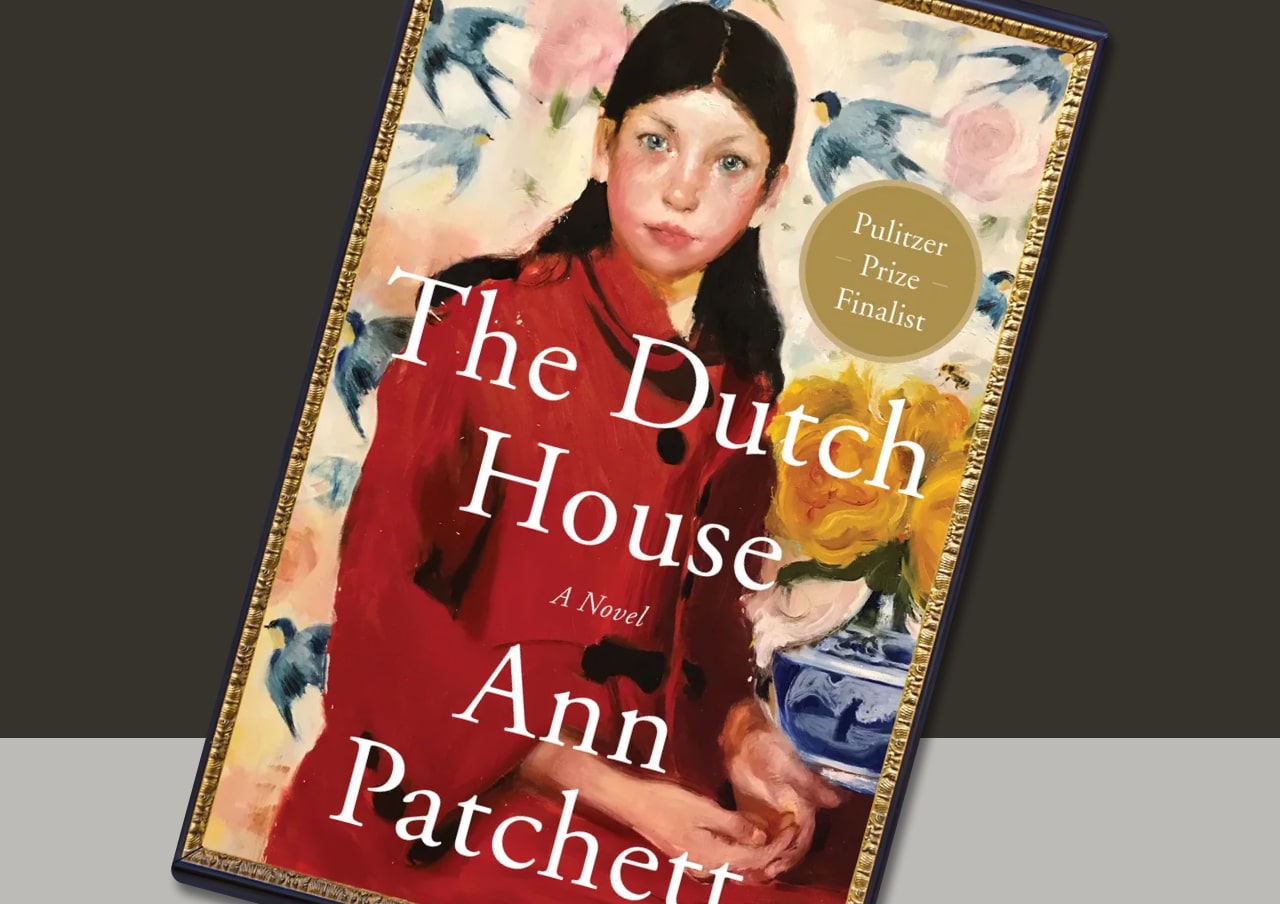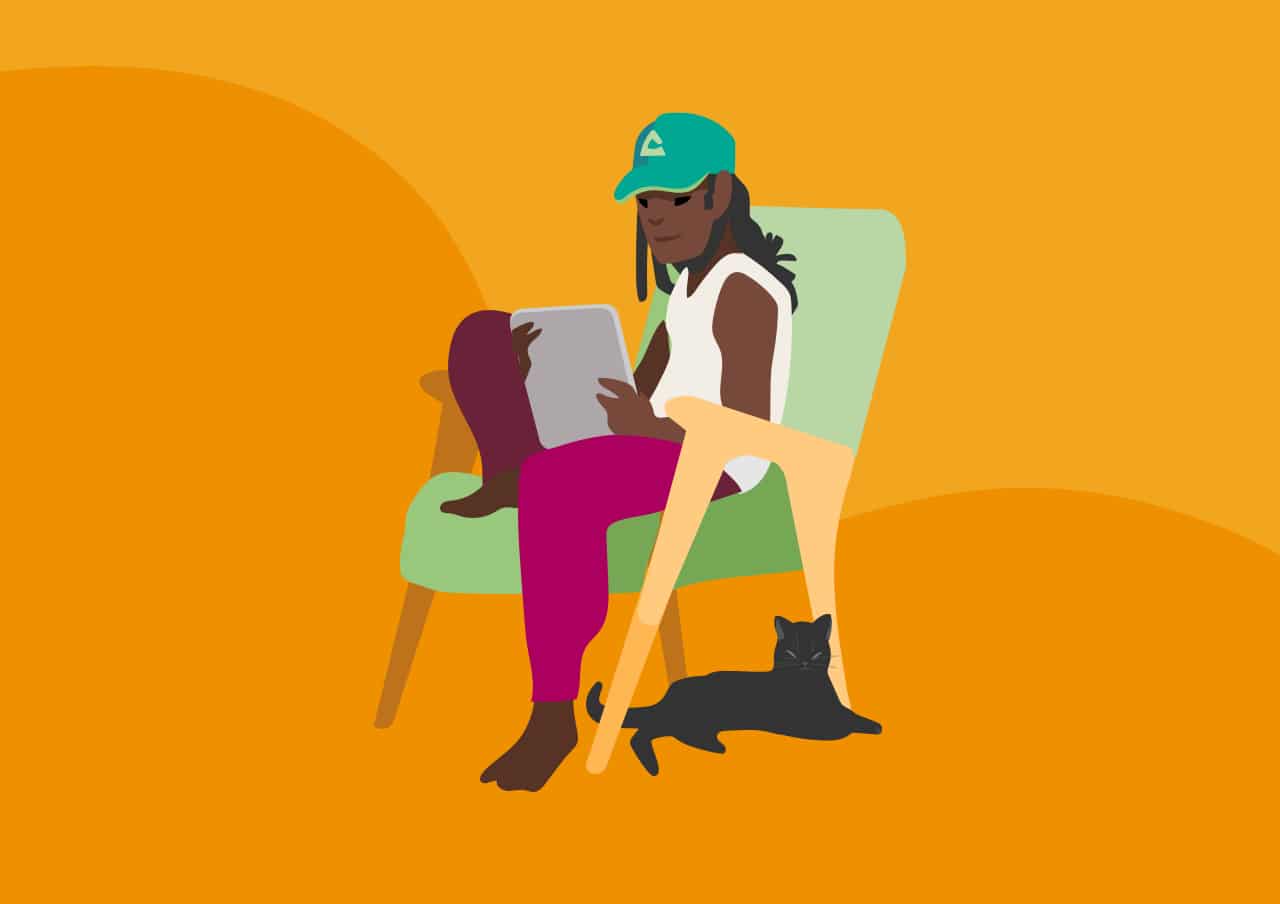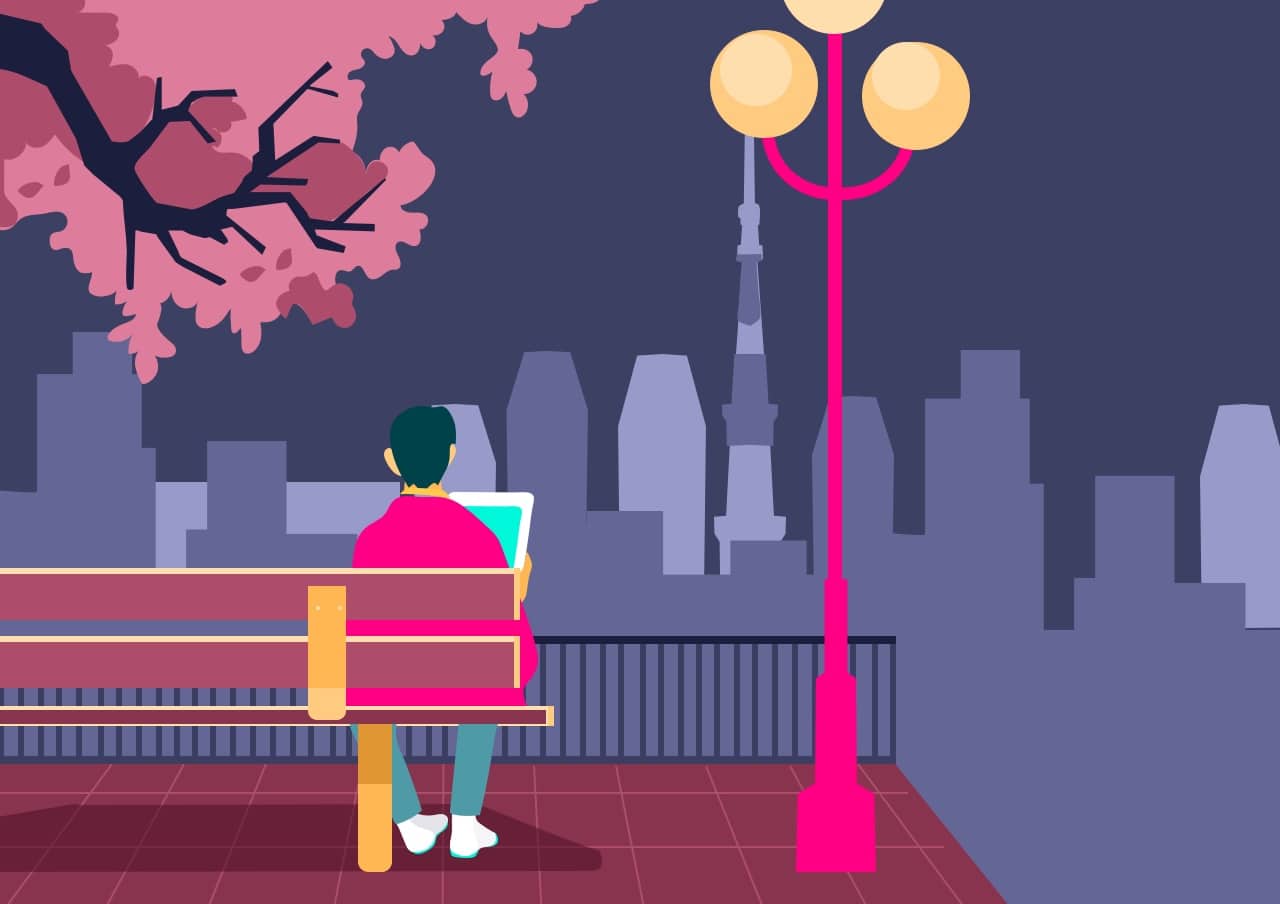
When Jen Winston set out to write Greedy: Notes from a Bisexual Who Wants Too Much, she wanted to write the book she needed as a teen. But as Jen compiled hilarious stories from their youth about embodying all the bisexual stereotypes — “greedy, slutty, and constantly confused” — what they ultimately created was a poignant exploration of gender, the male gaze, sexism, and biphobia. Greedy is an excellent read for Women’s History Month and we’re so happy to sit down with them to learn more about their book, feminism, and their favorite tips for celebrating this month to the fullest.
Scribd: What makes someone a feminist?
Jen Winston: At this point, I almost think it’s a good sign when you don’t have to overtly state that you’re a feminist. A feminist is someone who acts rather than talks about acting, and that’s something I had to learn and put into practice in my own life a lot — and I failed a lot at it, too! It’s also someone who generally respects other people and believes that all human beings deserve equal opportunity. We need a culture where we respect each other, care about each other, and do what we can to lessen the pain we cause one another, and to me, a feminist is someone who lives those values.
Scribd: You got personal in your book, often talking about topics women aren’t usually encouraged to write about. How did you handle the vulnerability writing about your youth (and other deeply personal subjects) required?
JW: Honestly, I’ve always been a very open person, so it actually felt more freeing for me to write all these NSFW details than to not write them. It’s definitely weird when I meet people and they now know all about my kinks or my sex drive as a teen, but in a way, it also removes that awkward small talk part of the conversation; it helps us dive right into the meaty part.
Scribd: Was there an essay that was the hardest to write? The easiest?
JW: The hardest one to write was an essay called “The Neon Sweater.” It’s about sexual assault. It was also really hard to do the audio record for that essay, because in an audiobook context I had to speak in a way that was very level-headed. But every time I read it, I really struggle with my own feelings and reaction and behavior in the moment. I guess that's the life of an actor!
As far as which essay was easiest to write, I’d say the first one, which is called “A Story to Ease the Author’s Imposter Syndrome." I wrote that about halfway through my first draft of the book because I was in my own head about whether I, someone who had mostly hooked up with men, “deserved” to write a book on bisexuality. After I’d written several chapters about sex with men, I had a panic moment where I was like, “Who’s going to believe that this book is bi?” and I started writing that essay as a letter of support to myself. It just kind of flowed out of me because I definitely needed to hear it.
Scribd: How has your identity as a woman influenced your writing?
JW: I absolutely did not realize that so much of this book would be about womanhood. I spent so much of 2016 and 2017 thinking about gender, and as I learned more about intersectionality and various privileges that I experience, I thought I was done looking at gender in this isolated, spotlighted way. But I realized womanhood — specifically white cis womanhood — is the lens I was socialized with, and so every single experience I’ve had came through that lens. That's especially true for experiences in my past where I had no idea how my gender was impacting my life at the time.
While I was writing the book, I was asking a lot of questions about the importance and significance of womanhood. By the end, I questioned what the label of “woman” was doing for me and came to a state of “I don’t know.” I’m really trying to sit in that “I don’t know” area and sit with that confusion — that bisexual confusion, if you will. Now I identify as a nonbinary woman or nonbinary femme; it depends on the day. I’m resonating with the title of woman less and less, though I still recognize it shaped my entire upbringing. In writing Greedy and having some distance from it, I was able to learn new things about gender and what gender’s implications on my life were.
Scribd: Who are some of your favorite women and nonbinary authors and how have they influenced you/your work?
JW: I think all of my favorite authors are women or nonbinary people. I’m really inspired by the work of Shiri Eisner who identifies as nonbinary and has written Notes for a Bisexual Revolution, which is basically a textbook on bisexual theory and bisexual politics. Eisner’s work really inspired the core of this book, which is the idea that you don’t have to be a “good” bisexual to be a valid bisexual. You can be greedy, you can be confused, and all those things are what actually make bisexuality your superpower. Reading their work was the first time I felt proud to be bi, and that was an amazing experience.
I love the work of Elena Ferrante, though I wish it delivered on the queer undertones it seeds. I'm currently reading a lot of contemporary fiction, and am loving Otessa Moshfegh — I'm deep into Eileen on audiobook right now. I also love reading the work of fellow debut author friends, such as Beautiful Country by Qian Julie Wang, The Atmospherians by Alex McElroy, Sirens and Muses by Antonia Angress, Cheat Day by Liv Stratman, and Open by Rachel Krantz. An extra special one of those is Brown Girls by Daphne Palasi Andreades — it's such a beautiful book. The whole thing is written in the first person plural and Daphne's prose feels like magic.
Scribd: What do you see in the future of publishing for women? Where does publishing need to step up its game when it comes to supporting women?
JW: A friend of mine and I once looked at the bestseller list and were like, “Wow, all of these authors are mediocre and they’re also all white.” My friend said, “I would love to see a bestseller list filled with mediocre art by people who aren’t white.” While that may not sound great [laughs], ultimately the idea is that white people shouldn’t be the only ones allowed to be mediocre. I think publishing really needs to step up its game in terms of centering queer narratives, especially the narratives of queer Black people and people of color. They need to center those stories and have them be like their moneymakers.
Scribd: How would you suggest others to celebrate Women’s History Month?
JW: I think Women’s History Month is a great chance to ask yourself if you’re happy in your gender. That might sound weird, but if you’ve never asked yourself about your gender, go for it! Take a second and be like, “When did I realize I identified this way?” and “Does this still feel right for me?”
I think any of these gender touch points — including external moments, such as using a public bathroom — is a chance to be like “How do I feel [about this]?” “Does this hit me the right way?” So I think that’s a great way. Also, look at your bookshelf, look at the TV you’re watching, and make sure your content is coming from diverse sources. (Read: People who don’t look like you.)
Scribd: Do you have a Women’s History Month fact (i.e., an achievement made by a woman that many people aren’t aware of) that you really enjoy?
JW: Monica Helms created the trans pride flag in 1999 — hard to believe that happened just over 20 years ago. So much progress has been made, but as we can all see from the laws being passed in Texas and other states right now, there's so much left to go.
